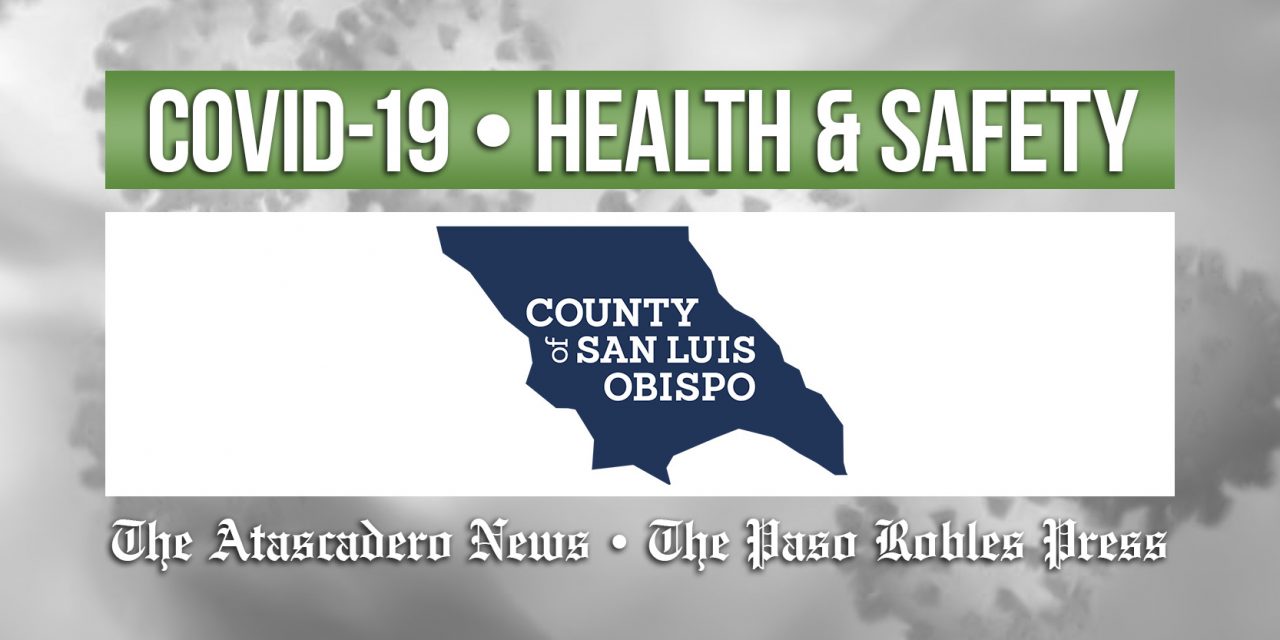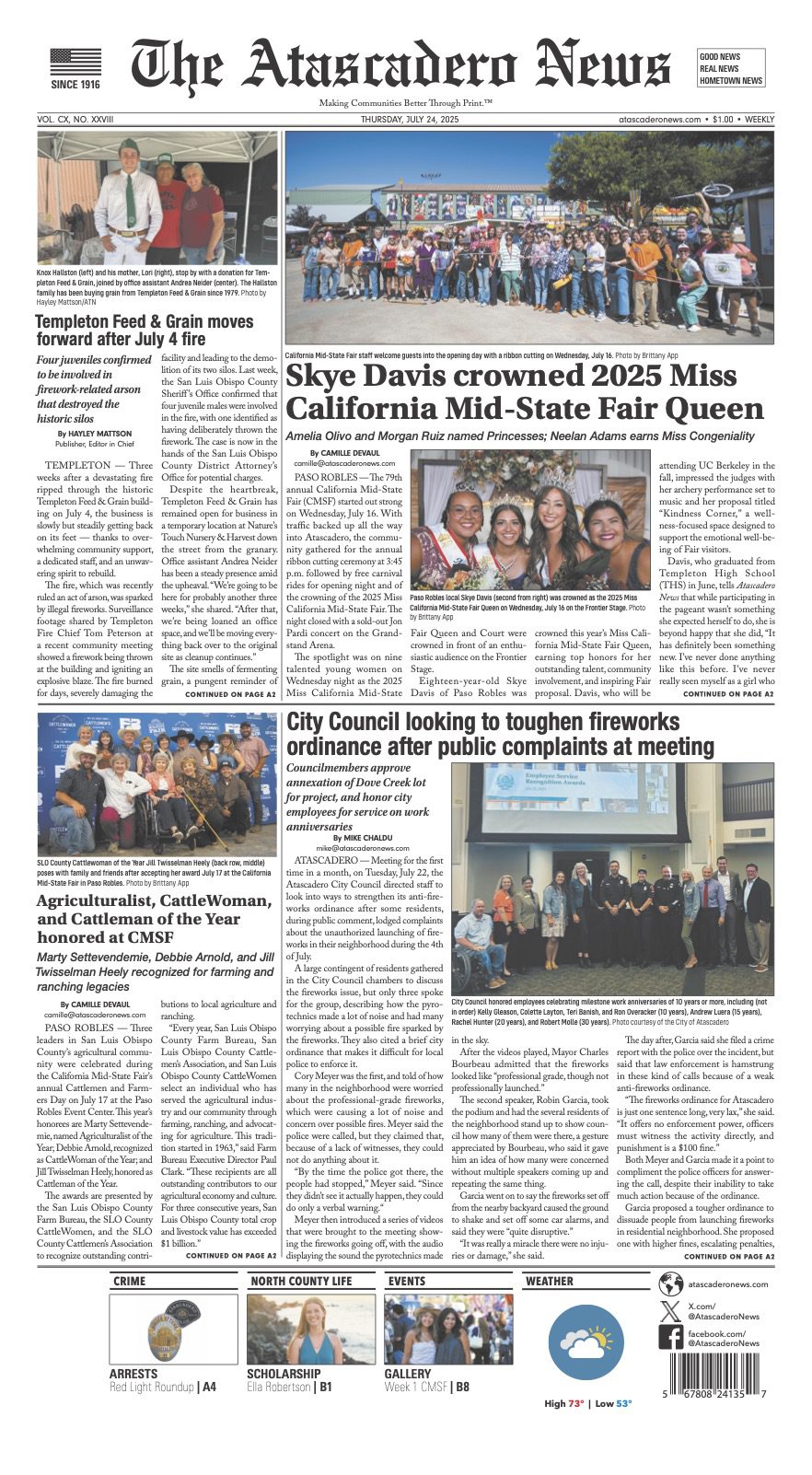Initial allocation expected in mid-December
SAN LUIS OBISPO — Rather than spend time Thursday bashing the state or feeling sorry for San Luis Obispo’s regional draw, County Public Health Officer Penny Borenstein talked of the imminent arrival of a COVID-19 vaccine.
“I do want to really emphasize because I know I am feeling, I’m personally feeling it, I’m sure our audience is feeling this sense of heaviness,” Dr. Borenstein said. “I really do want us to keep our eyes on the light at the end of this tunnel. We continue to do well in this County; that is good news. And we have a vaccine coming. We have vaccines coming.”
Borenstein said two vaccines are on the cusp of receiving FDA approval for emergency use. State officials have said doses are expected to arrive in mid-December.
“At a state level, I think the last time I spoke about this, I may have been saying that the first allocation to the state was intended to be or expected to be in the 1-2 million range,” she said. “We’ve now gotten notification that the very first allocation to the State of California is numbered at only 327,000 doses.”
Of that, SLO County is going to get “just shy of 2,000 of those very first doses,” Borenstein said.
Based on national recommendations coming out of the Centers for Disease Control as well as the California Vaccine Advisory Committee, the initial doses will be going to health care workers as well as vulnerable populations living in senior living settings, skilled-nursing homes in particular.
“When we look at health care workers and our residents in skilled nursing facilities, we have a number that is more like 17,000,” Borenstein said. “So obviously, we will have to make some additional triage decisions.”
To help with those decisions, SLO County will bring together and add to an existing health care coalition in the coming days to a week.
“We will almost certainly start with the highest-risk health care workers in hospitals and at the skilled-nursing facilities, the staff, the residents,” Borenstein said. “Beyond that, we have some hard decisions to make and that is only with the first allocation.”
Borenstein said the County was forming a COVID vaccination task force that would draw from all sectors to assist with challenging vaccine allocation decisions following the initial allotment.
“We are drawing from community-based organizations, from faith-based organizations, from health care folks, business, agriculture, farmworkers, homeless serving folks, individuals who represent ethnic and racial communities, and we are beginning to put together a list of names who will represent each one of those sectors, and we hope to bring that group together in the near-term as well because we need to start that very difficult work sooner rather than later,” she said.
Dr. Borenstein gave her weekly COVID-19 briefing, hours after Gov. Gavin Newsom announced the state’s new regional stay-at-home order that heavily weighs intensive care capacity.
Borenstein hoped SLO County residents would focus during the stay-at-home time.
“If we get ourselves into that Yellow Tier in three weeks and the stay-at-home order is lifted, it needs to be a minimum of three weeks, Borenstein said, “but if our region does well in terms of its ICU capacity and we use that time to get our caseload quite low, we will be able to move forward just as quickly as the stay-at-home order is lifted.”
The order focuses on slowing the spread by region. There are five regions and SLO County is in the Southern California region. It and three other regions are projected to reach the state’s ICU capacity limit by Friday, Dec. 4.
The order will go into effect within 24 hours in regions with less than 15% ICU availability.
SLO County has one COVID patient in the ICU and 10 people hospitalized with the virus. The County’s hospitalizations have been low throughout the pandemic, and because of this, Borenstein said the County sought relief from the state.
“I did plead with the state that we be allowed to use our hospital bed capacity, our ICU bed capacity, but we do not stand alone, and this is the state’s approach to trying to drive down what is a remarkable resurgence of this disease at this time,” Borenstein said.
SLO County Administrative Officer Wade Horton echoed Borenstein’s comments.
“The fact that we are grouped with all of Southern California, as Dr. Borenstein stated, doesn’t make a lot of sense to me,” Horton said. “We will continue to advocate with the state to realign our County either with another region or a smaller region.”
Horton said he knows the order puts businesses in a difficult position.
“I want to make sure that the businesses understand that we know this is a difficult situation to be in,” Horton said. “We need to pull together as a community right now, shop locally, order online locally, let’s do what we can to support our businesses.”
As far as enforcement, Horton said the County’s goals remain to educate and try to obtain guidance.
“But when the state comes down and says this is what you need to do and there needs to be enforcement, we’re going to have to look at that,” Horton said. “Also understand that the state will be making resources available for egregious violations.”
Borenstein noted the COVID-19 testing site at the Paso Robles Event Center was expanding to five days a week, Tuesday through Saturday. A new testing site in Nipomo was opening three days a week, Monday, Thursday and Saturday.
For more information, visit ReadySLO.org or call the recorded Public Health Information Line at 805-788-2903. A staffed phone assistance center at 805-543-2444 is available Monday-Friday, from 8 a.m. to 5 p.m. to assist with questions related to COVID-19.
















